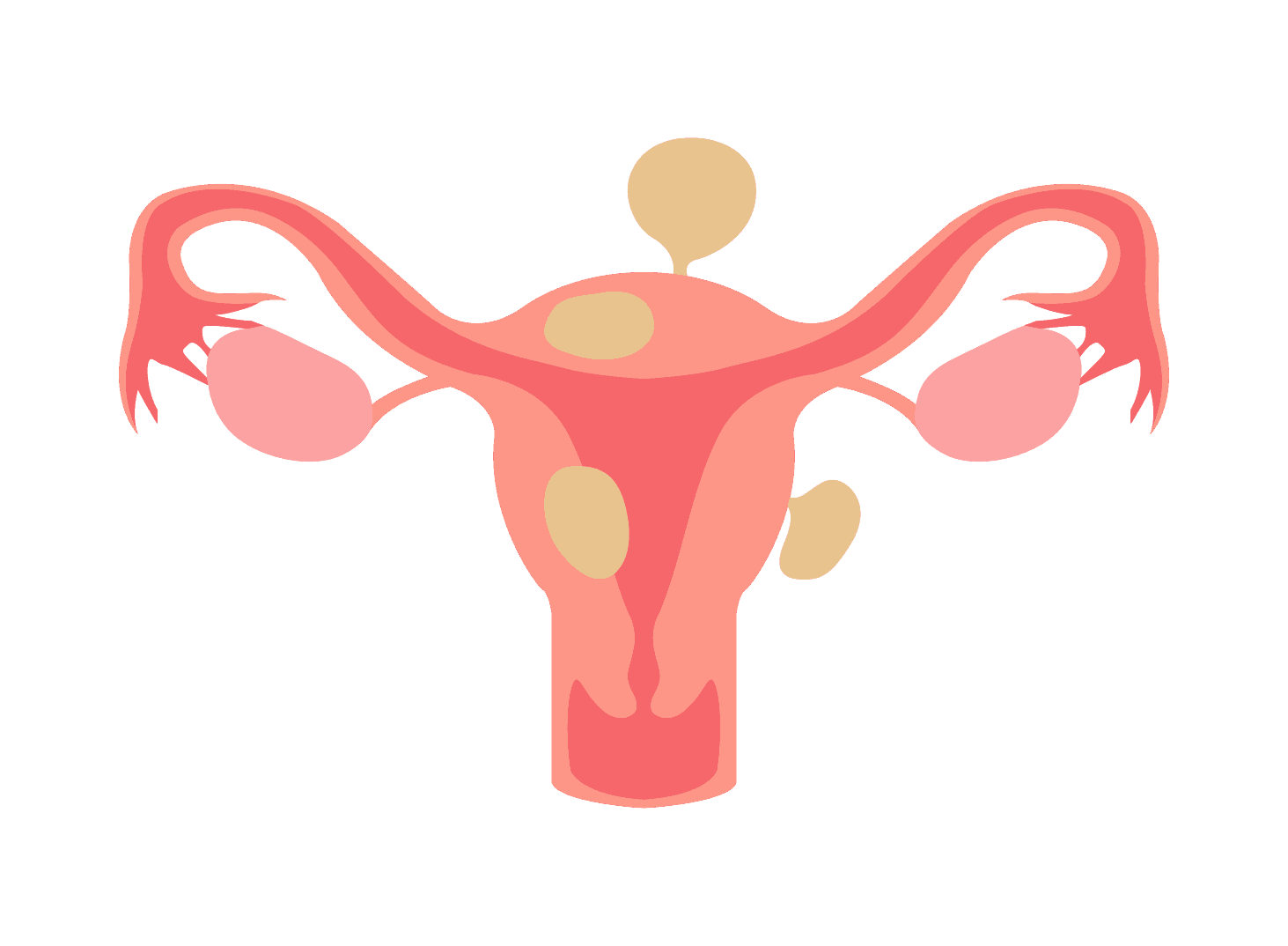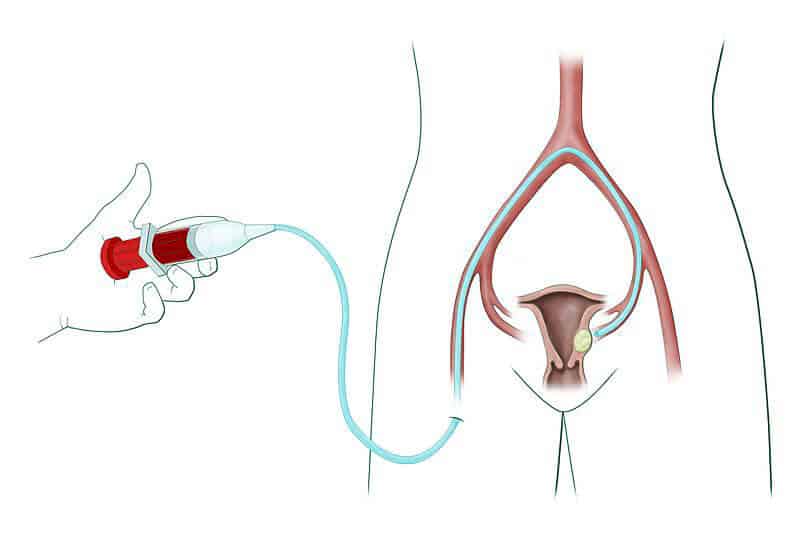Don’t Suffer Another Day from Uterine Fibriods

Hover over fibroids to learn more
What are Uterine Fibroids?
Uterine fibroids are among the most common non-cancerous growth affecting a women’s reproductive health. Up to 80 percent of women are affected by the age of 50. Most women who experience fibroids never experience symptoms, so they go usually unnoticed.
Uterine fibroids are abnormal benign growths of muscle and uterine tissue that occur in or around the uterus. While the exact cause is unknown, some evidence suggests menstrual and pregnancy hormone changes can influence their growth.
The vast majority of uterine fibroids occur during a woman’s reproductive years. They usually aren’t large enough to cause adverse symptoms, however, if they grow in certain locations or become large enough, they can cause rare, but serious complications.
The Health Effects of Uterine Fibroids
- Prolonged or heavy periods, bleeding between periods
- Anemia caused by heavy cycles
- Increased tummy size, sensation of pelvic bulk or heaviness
- The need to urinate frequently and often without being able to completely empty your bladder (like during pregnancy)
- Constipation
- Fertility issues: difficulty carrying a pregnancy to term or getting pregnant
- Pregnancy complications: early labor, fetal growth restrictions, spotting, loss of pregnancy
- Pain during intercourse
Fibroids by Location
Intramural fibroids: located within the muscular wall of the uterus, potentially causing heavier bleeding during periods.
Subserosal fibroids: located in the outer wall of the uterus, which can cause contact with tissues outside the uterus in the pelvis.
Submucosal fibroids: located in the inner lining of the uterus, the area that grows and is shed during your normal periods. These can impinge upon this cavity leading to increased bleeding with menstruation and also may interfere with pregnancy or cause fertility issues.
Cervical fibroids: located in the ‘neck’ of the uterus, may interfere with birth or fertility.
About Uterine Fibroid Embolization
If you are experiencing some of the symptoms we described above, you may have uterine fibroids. Speak with your interventional radiologist (IR) or your OB-GYN about being tested. If you have fibroids or other associated medical conditions causing reproductive health issues, we want you to learn that there are multiple options. Many women may not be aware of this. When you buy your dream heels or the perfect dress, are they one-size-fits-all? Of course not! You need to try them on, feel them and be convinced the price is right! Why then do we treat our health differently? It is important you speak with both your IR AND OB-GYN to come to the right decision about your health specifically. This team approach is critical to ensure you have the best possible outcome.
At CLI Vascular Specialists, we offer minimally invasive treatment options that can be performed in less than one hour. Our patient-centered approach to fibroid embolization helps to preserve fertility and protect overall uterine health. This procedure uses advanced imaging techniques and small needles/cathers that allow your IR to enter the arteries that feed the uterus. They can then inject microscopic particles into these branches to significantly slow down blood flow to the fibroids. This causes near or complete cessation of menstrual bleeding and shrinkage of the fibroids over several months. This effect is like what we see when a flower that does not get enough water. Eventually, the petals and leaves shrinks and dry out, but do not completely disappear. Uterine fibroid embolization is therefore, not a surgical method of removal. The procedure is done in the office either through your groin or the wrist. You will go home the same day and have regular follow-up with both your OB-GYN and IR. Fibroid embolization in West Palm Beach is the first stage of intervention, preventing the need for more serious procedures like myomectomy or hysterectomy

Our Locations in Palm Beach County
With locations throughout South Florida, as well as a telemedicine, world-class treatment is never far with CLI Vascular Specialists.
